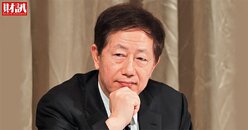- Joined
- Oct 9, 2007
- Messages
- 47,571 (7.46/day)
- Location
- Dublin, Ireland
| System Name | RBMK-1000 |
|---|---|
| Processor | AMD Ryzen 7 5700G |
| Motherboard | ASUS ROG Strix B450-E Gaming |
| Cooling | DeepCool Gammax L240 V2 |
| Memory | 2x 8GB G.Skill Sniper X |
| Video Card(s) | Palit GeForce RTX 2080 SUPER GameRock |
| Storage | Western Digital Black NVMe 512GB |
| Display(s) | BenQ 1440p 60 Hz 27-inch |
| Case | Corsair Carbide 100R |
| Audio Device(s) | ASUS SupremeFX S1220A |
| Power Supply | Cooler Master MWE Gold 650W |
| Mouse | ASUS ROG Strix Impact |
| Keyboard | Gamdias Hermes E2 |
| Software | Windows 11 Pro |
Last week, TSMC surprised the semiconductor industry when it announced the untimely departure of Chairman Mark Liu from his role. This came in the form of a regulatory disclosure that Liu would not be nominated for membership of the TSMC Board, and would retire as chairman after the company's next annual shareholders meeting. Taiwan-based Wealth Magazine published a sensational report going into the details of what led Liu to step down, considering that TSMC as a company remains healthy, and growing on the backs of the AI HPC processor and smartphone SoC boom.
The Wealth Magazine report says that Mark Liu was forced to step down as chairman over what it terms as the Arizona fab "debacle." 2022-23 had Western investors gripped in fear over a possible military conflict across the Taiwan strait, with the U.S. Government frantically looking to make the semiconductor industry supply-chain "resilient." This mainly had to do with TSMC setting up cutting-edge semiconductor fabs on U.S. soil, with some financial and legal assistance from the government. 2023 saw delays in TSMC's plans to construct its Arizona fab, dubbed Fab 21, which probably had a strategic impact on U.S. foreign policy.

View at TechPowerUp Main Site | Source
The Wealth Magazine report says that Mark Liu was forced to step down as chairman over what it terms as the Arizona fab "debacle." 2022-23 had Western investors gripped in fear over a possible military conflict across the Taiwan strait, with the U.S. Government frantically looking to make the semiconductor industry supply-chain "resilient." This mainly had to do with TSMC setting up cutting-edge semiconductor fabs on U.S. soil, with some financial and legal assistance from the government. 2023 saw delays in TSMC's plans to construct its Arizona fab, dubbed Fab 21, which probably had a strategic impact on U.S. foreign policy.

View at TechPowerUp Main Site | Source






